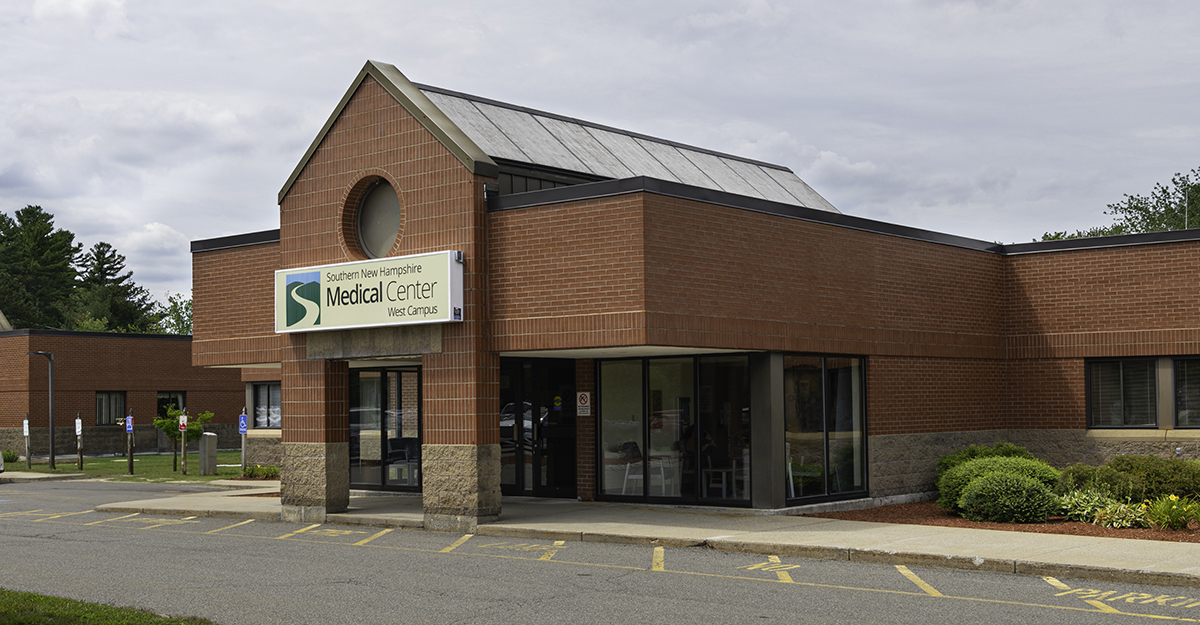Center for Recovery Management at Nashua
29 Northwest Blvd
Nashua, NH 03063
Phone: 603-402-2070
Fax: 603-577-2323
Mon-Fri
8am-5pm

29 Northwest Blvd
Nashua, NH 03063
Phone: 603-402-2070
Fax: 603-577-2323
Mon-Fri
8am-5pm
Our providers are dedicated to the well-being of you and your family. Learn more about our patient-centered care team to help find the right provider for your needs.
SolutionHealth MyChart is the secure patient portal for Southern New Hampshire Health. Here, you can communicate with your doctor, access test results, request prescription refills, manage appointments, and more.
The Center for Recovery Management at Nashua is an office-based outpatient clinic providing comprehensive substance use disorder treatment for patients of all ages, including those who are pregnant. We take a wholistic, evidence-based approach to recovery and our treatment plans are developed with each patient’s unique needs in mind.
We can also assist with connections to:
Medication assisted treatment (MAT) is the use of prescription medications in combination with counseling for the treatment of substance use disorders. MAT is used in the treatment of both opioid and alcohol use disorders. The medications work by balancing brain chemistry, blocking the euphoric effects of alcohol and opioids, and decreasing physical cravings. Commonly prescribed medications include oral Naltrexone, extended-release Naltrexone (Vivitrol), Buprenorphine-Naloxone (Suboxone), Buprenorphine (Subutex), Acamprosate (Campral), Disulfiram (Antabuse), and extended-release Buprenorphine (Sublocade).
Research has proven that a combination of therapy and prescription medications can:
A multidisciplinary team of health care providers, mental health professionals, and support staff work together to treat patients at the Center for Recovery Management at Nashua. In addition to being experts on substance use disorder and recovery, every member of our team is committed to providing you with respectful, compassionate care and meeting you where you are.
Our team includes:
A doctor or nurse practitioner who is specially trained in substance use disorder and recovery medicine. Your provider will conduct a comprehensive evaluation, order lab work and drug testing, discuss your treatment options, prescribe medication to assist your recovery, and coordinate treatment with other team members. They will also support you throughout your recovery during routine follow-up appointments.
An embedded care coordinator (ECC), who is a registered nurse with special training in recovery. The ECC is a critical component of your care team. In addition to conducting your initial assessment, they also serve as the liaison between you and your provider throughout treatment via office visits and telephone check-ins. They also administer medication injections, connect you with recovery support services, and much more.
A mental health therapist with experience treating patients with substance use disorder supports your mental and behavioral health needs throughout recovery. Our therapist provides structured substance use disorder-focused counseling to all patients in group and individual settings, as well as counseling for co-occurring mental health disorders as needed. They can also provide crisis intervention and family support.
A certified recovery support worker uses their personal experience with substance use disorder combined with special training to serve as a mentor, advocate, and motivator to help prevent relapse and promote long-term recovery. They can work with you to identify unmet needs, connect you to resources, and help you with goal setting throughout recovery. You will have a brief check-in with your certified recovery support worker during every visit.
Our team’s patient services representative and medical assistant have special training on the unique needs of patients with substance use disorder and the challenges of recovery. They, like the rest of our team, are dedicated to promoting a supportive and stigma-free environment.